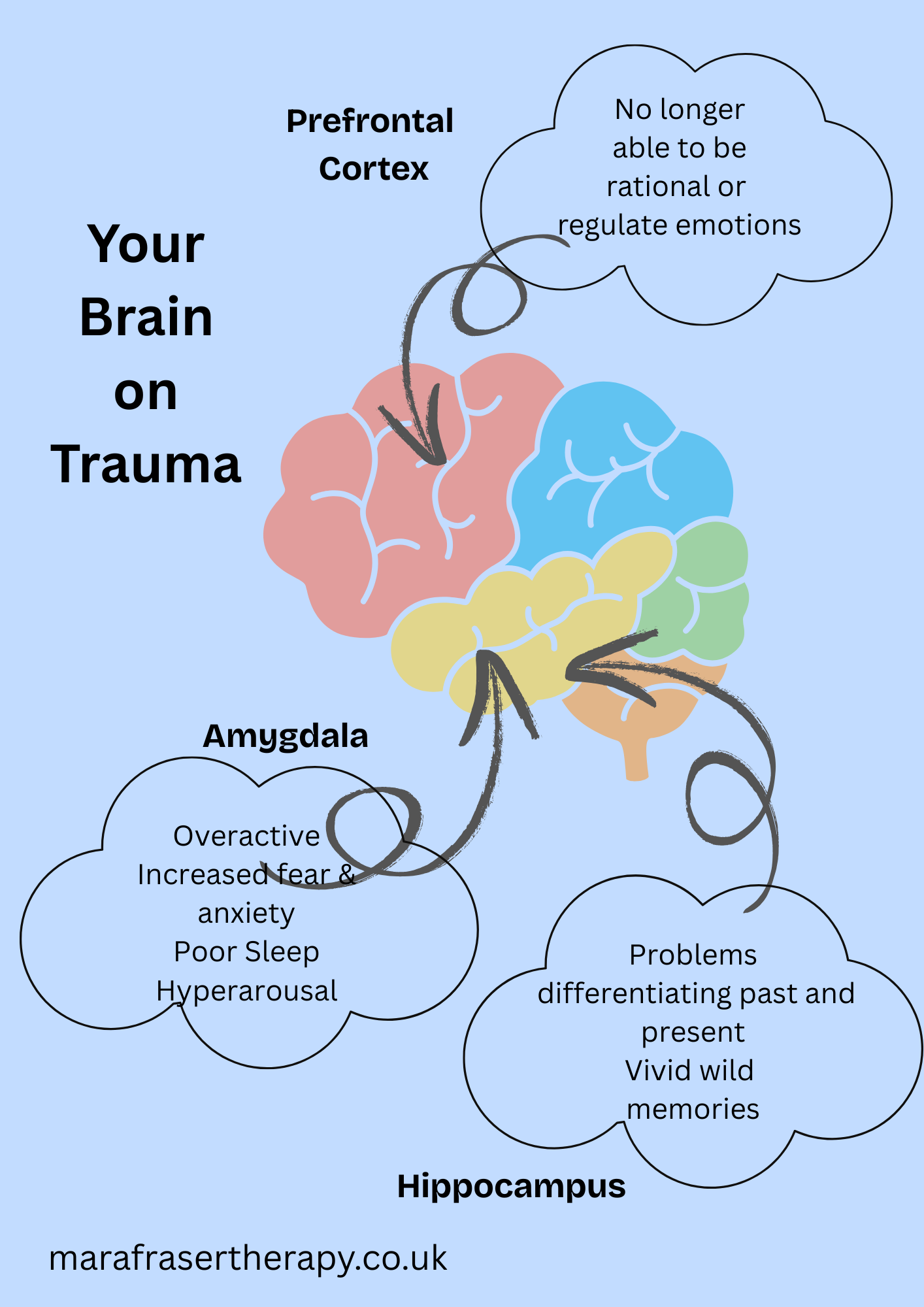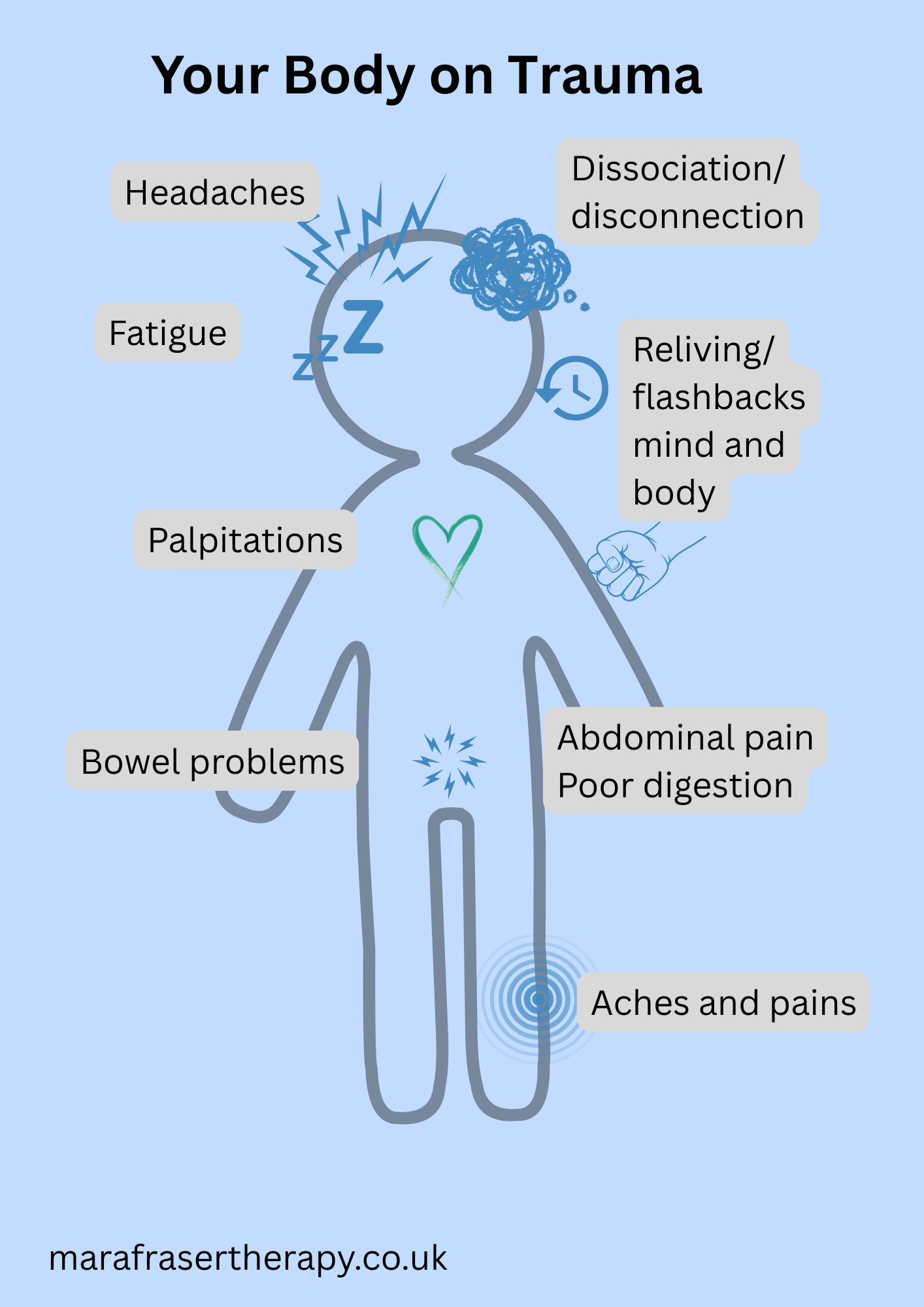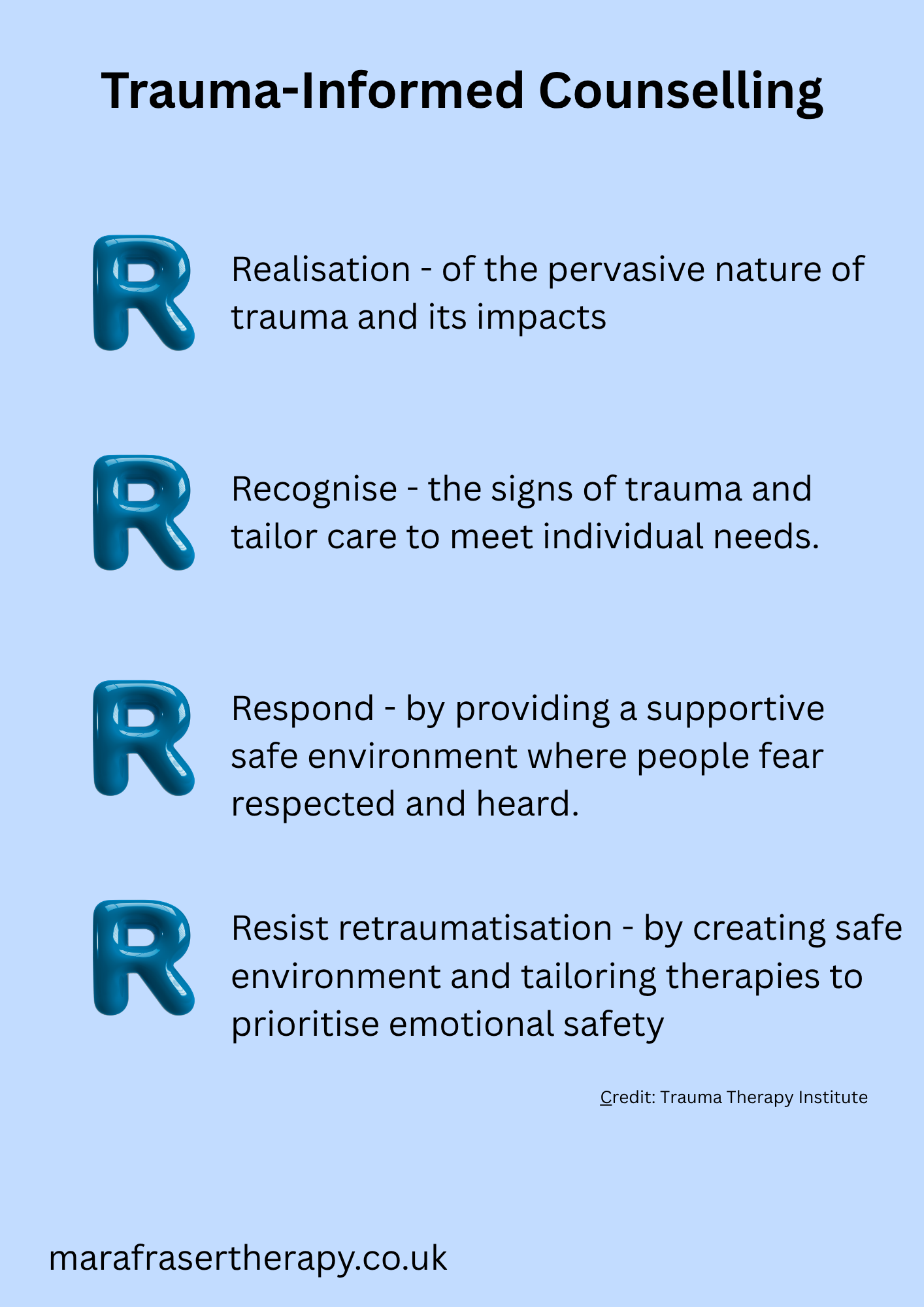Understanding Trauma
Trauma can affect anyone at any time. It may be that you have experienced a one-off distressing event, or it could be that you have survived a series of ongoing events. Both types of trauma can leave deep emotional scars. These scars can have long-term effects on how we think, feel, and relate to others. Getting an understanding of what trauma is, how it affects you and seeking the right support is the first step toward reclaiming your sense of peace and wellbeing.
What Is Trauma?
Trauma is an emotional response to a deeply distressing or disturbing experience. This response often makes a person feel overwhelmed and unable to cope. Some of the root causes of trauma include:
Abuse at any stage of life
Ongoing domestic/partner abuse
Accidents
Loss
Bereavement - especially unexpected deaths or death by suicide
Violence
Witnessing distressing events
Everyone responds differently, but most people report a sense of helplessness, fear, shame or guilt.
Trauma and your brain
Trauma has a physical impact on the functions of the brain:
Prefrontal cortex - responsible for executive functions and emotional regulation
The PFC becomes less able to override fear responses from the amygdala. There is a reduced ability to make rational decisions. The person ends up in a state of ‘survival mode’.
Amygdala - responsible for emotional responses
The amygdala is hyperaroused, causing hypervigilance. The person starts to experience anxiety and fear with an increased startle response to minor triggers.
Hippocampus - involved with memory storage
The hippocampus starts to fail when processing trauma. This leads to memories being stored incorrectly and out of context. These memories may resurface unexpectedly, and because they’re stored incorrectly, it can feel as if an event is happening right now. This causes a release of stress hormones.
Physical responses to trauma
Some of the physical and emotional experiences associated with trauma often continue long after the original events. some of the most commonly report issues are:
Disturbing memories
Flashbacks - both emotional and physical
High levels of anxiety
Low self-worth
Shame, guilt
Inability to trust and form relationships
A variety of physical symptoms (see image) that the person may often feel is unrelated to the trauma.
Those people who experience Post-Traumatic Stress Disorder (PTSD), often have distressing memories, nightmares, flashbacks, or heightened anxiety which stick around long after the original event has passed. For people who have experienced long-term repeated trauma, usually associated with abuse, neglect, continual exposure to unsafe people and places, they can experience Complex Post-Traumatic Stress Disorder. In this case, along with the physical symptoms of trauma, they may also experience problems with self-esteem, shame and feel unable to trust others. Often, people who have experienced long-term abuse feel disconnected from others in general and unable to form new close relationships.
If this is starting to sound familiar, it is important to know that these are all normal responses to extreme and/or prolonged stress. Both can be helped through trauma-informed counselling.
Trauma-informed Counselling: What is it and how can it help?
As a trauma-informed counsellor, I fully recognise that the impact of trauma goes far beyond the mind to impact the body, emotions and a person’s sense of safety.
I will work with you at your pace to help you process what happened and learn ways to manage the physical and emotional effects of the trauma.
At all times, you are in control - we will move as fast or as slowly as feels safe for you. We will work on building a trusting relationship where you feel safe before we explore your deeper experiences.
I will always work with compassion, care, and sensitivity, while also being mindful of how past experiences can influence our thoughts, feelings, and actions today.
I draw on a range of therapeutic approaches to make sure that your session meets your unique needs. I aim to make the sessions relaxed, empowering and respectful as we navigate your story together.
Healing Takes Time
Counselling helps by working with you to find ways to live more fully, be more resilient, and develop greater self-understanding. Although counselling can never take away the trauma, it can work with you to reduce anxiety, depression or hypervigilance. It is possible to feel safer in day-to-day life.




